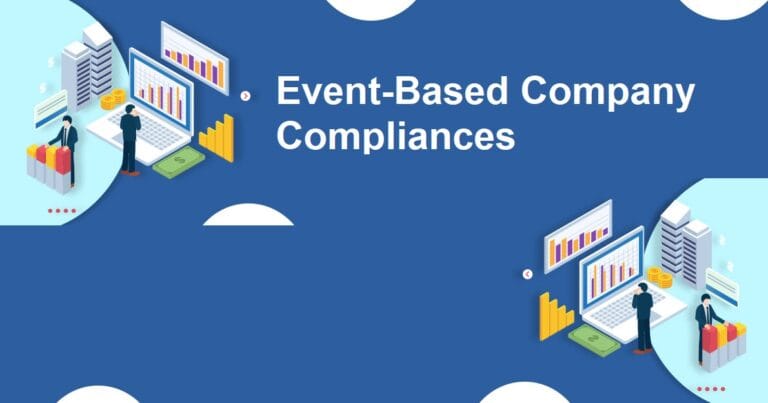Incorporating an LLP (Limited Liability Partnership) in India involves several steps and compliance requirements under the provisions of the Limited Liability Partnership Act, 2008. Here’s a detailed guide on the process, requirements, and steps involved in incorporating an LLP in India:
Incorporating an LLP in India
1. Choose Partners and Designated Partners
- An LLP must have at least two partners. At least one of them must be a resident in India.
- Partners must obtain a Digital Signature Certificate (DSC).
2. Obtain Designated Partner Identification Number (DPIN)
- All designated partners must obtain a DPIN. This can be applied for through the LLP Form 7.
3. Name Reservation
- Apply for reservation of the LLP name through the LLP Form 1. You can suggest up to six names and check their availability.
4. Prepare LLP Agreement
- Draft and execute the LLP Agreement, which defines the rights, duties, and responsibilities of partners and the LLP.
5. File Incorporation Documents
- File Form FiLLiP (Form for incorporation of Limited Liability Partnership) on the MCA portal. Upload the LLP Agreement and other required documents.
6. Certificate of Incorporation
- Upon verification and approval, the Registrar issues a Certificate of Incorporation. This establishes the LLP as a separate legal entity.
7. Post-Incorporation Formalities
- PAN and TAN: Apply for PAN and TAN after incorporation.
- Bank Account: Open an LLP bank account and deposit the initial capital.
- GST Registration: If applicable, register for GST with the GSTN.
8. Compliance Requirements
- Annual Filings: File annual returns and financial statements with the Registrar of Companies (RoC).
- LLP Agreement Amendments: File Form 3 for any changes in the LLP Agreement.
- Board Meetings and Minutes: Maintain records of meetings and resolutions.
Best Practices for Incorporation
- Plan Thoroughly: Conduct thorough research and planning before choosing the business structure.
- Compliance Awareness: Stay updated with the latest regulatory and compliance requirements.
- Professional Assistance: Seek professional advice from legal and financial experts to navigate the incorporation process.
- Document Management: Ensure all documents are accurately drafted, executed, and filed with the appropriate authorities.
- Continuous Monitoring: Regularly monitor and comply with annual filing and compliance obligations to avoid penalties and legal issues.
Incorporating an LLP in India involves following a structured process and complying with various legal and regulatory requirements. By understanding the steps, requirements, and best practices outlined in this guide, entrepreneurs can effectively navigate the incorporation process and establish a strong legal foundation for their business in India. Each step is crucial to ensure compliance and operational readiness, enabling businesses to focus on growth and success in the dynamic Indian market.
At Ujjwal Gupta & Co
We, at Ujjwal Gupta & Co, are dedicated to delivering personalized, high-quality solutions tailored to meet your financial and business needs. With our team of professionals and a client-first approach, we ensure that every challenge is met with expert guidance and strategic insight.
We are dedicated to ensuring your business’s success by providing best service practice available in the industry and that too at a cost effective pricing. Our team of experts is excited to work with you and provide the support you need to thrive in the Indian business landscape.
Our only motive is to create Value for Our Clients and accordingly, have a Client Value System at our Office.
So, let us help you navigate the complexities of finance and compliance, empowering you to focus on what matters most — growing your business. Get in touch today, and take the first step towards financial peace of mind.
An LLP (Limited Liability Partnership) is a hybrid business structure that offers the benefits of both a company and a partnership. It provides limited liability to its partners, meaning their personal assets are protected from business liabilities, while allowing for the flexibility of a partnership.
An LLP can be registered by:
- A minimum of two partners (there is no upper limit for the number of partners).
- Individuals or corporate bodies (companies, LLPs) can be partners.
- At least one partner must be a resident of India.
Key benefits of an LLP include:
- Limited liability for partners.
- No minimum capital requirement.
- Separate legal entity: The LLP can own property and sue or be sued in its name.
- Less compliance compared to companies.
- Tax advantages: LLPs do not have to pay dividend distribution tax (DDT) or minimum alternate tax (MAT) like companies.
The process includes:
- Obtaining Digital Signature Certificate (DSC) for the designated partners.
- Applying for Director Identification Number (DIN) for all partners.
- Filing for name approval through the RUN-LLP form on the MCA (Ministry of Corporate Affairs) portal.
- Filing Form FiLLiP (Form for Incorporation of LLP) along with required documents such as the LLP agreement and partner details.
- Once approved, the Certificate of Incorporation is issued by the Registrar of Companies (RoC).
There is no minimum capital requirement for registering an LLP. The partners can contribute any amount as agreed mutually in the LLP Agreement.
A designated partner is responsible for ensuring compliance with statutory and regulatory requirements. Every LLP must have at least two designated partners, with at least one being a resident of India. They are also accountable for signing legal documents and filings.
The documents required include:
- Identity proof and address proof of the partners (such as PAN, passport, Aadhaar).
- Digital Signature Certificate (DSC) of the designated partners.
- Registered office address proof (utility bills, rent agreement).
- LLP Agreement outlining the roles, responsibilities, profit-sharing ratio, and other operational details of the partners.
Yes, a foreign national can be a partner in an LLP. However, at least one of the designated partners must be a resident of India. In case of foreign direct investment (FDI) in an LLP, compliance with RBI guidelines is required, and FDI is allowed only in sectors where 100% FDI is permitted under the automatic route.
LLPs have fewer compliance requirements compared to companies but must still adhere to:
- Filing annual returns (Form 11) with the Registrar of Companies (RoC).
- Filing Statement of Accounts and Solvency (Form 8).
- If the LLP’s turnover exceeds ₹40 lakh or capital contribution exceeds ₹25 lakh, a statutory audit is required.
- Income tax returns must be filed annually.
LLPs are taxed as partnership firms under the Income Tax Act, 1961. The income tax rate applicable to LLPs is 30%, along with a surcharge (if applicable) and cess. LLPs are exempt from dividend distribution tax (DDT) and minimum alternate tax (MAT), which apply to companies.
Why Choose UGC?

Client Centric Approach
Client is the key driver of our service offerings. Our approach to service offerings is based on a client centric and customized approach. Our specialized teams are a mix of technical and industry experience in order to serve clientele for their specific needs.

Team Work
We have built high performing teams supported by strong work ethic. Our team is a mix of experts, professionals and support staff from technical and varied academic, social and ethnic backgrounds. We believe diversification plays a vital role in motivating the team.

Quick Turnaround
We always endeavour for a quick turnaround time to serve our clientele. We are supported by an experienced and client focussed support teams to offer timely services to our clientele. In case of any business exigencies and time sensitive service requirements, you can always count on us.

Open Communications
We believe that open communication is the core principle in order to demonstrate trust, build long lasting and valuable relationships with clientele. We are committed to ensuring transparency in communication, service offerings and delivery. We provide professional services to our clients.

Client Value System
We value for the Client time and thus, we offer services that are value for money. Quality professional services are provided to our clients, so that they are able to achieve their desired results. We are a quality trademark in the industry and thus, our clients count on us always.

Quality in Delivering Work
Our service offerings are driven by quality and reviews at every level. We strive to provide a qualitative and value-added delivery to our clientele. At all times, we endeavour to provide exceptional client service by meeting client expectations and driving client satisfaction.



























